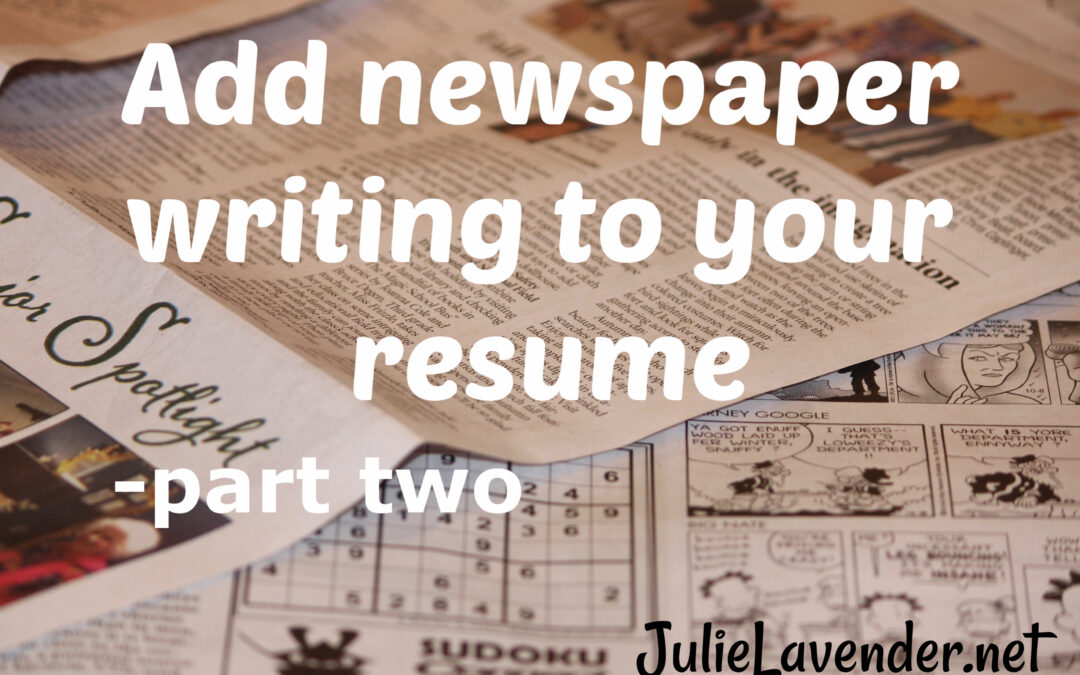First, study the paper. Read it from cover to cover. Check the story lengths of front page stories and those on the inside pages. Look at all the departments. Compare the local stories to those purchased from Associated Press or other avenues.
What feature articles appear front-page? Are personal profiles used? Is there a Lifestyle section, perhaps in the Sunday edition? Are educational stories included? Faith-based articles? Is there adequate sports coverage for local teams? Are family-friendly stories included? Stories featuring women? Do the article headlines reflect the diversity of your community and country?
Once you have a feel for the stories your newspaper publishes, seek three to four similar, but fresh, stories with local relevance to research. Conduct interviews, if necessary, and make sure every fact is irrefutably accurate. (We’ll talk more about interviews next time.)
Snap pictures to go along with the articles, just in case the editor wants to use your sample story for an upcoming issue.
Compose and type the stories, including relevant pictures. Print hard copies of the samples to present to an editor, though if you develop a working relationship, you’ll most likely email future stories to him or her.
Email or phone the newspaper editor and ask for an appointment to discuss freelance opportunities. If you’re published, share that info with the editor. If you’re not published, share other related information. Like, how long you’ve lived in the community or your involvement there. How passionate you are about the community. Any education degrees or certificates or writing courses/conferences you’ve attended that have given you the skills to write for the paper. Share whatever pertinent information that could be a selling point for you as a freelancer.
Armed with samples, arrive on time for the appointment and confidently share your desire to contribute local content to the paper.
When the editor smiles and says, “Yes – I love it! Give me more!” – then you’ve won the jackpot!
Ask if you can supply stories regularly – and be sure to ask how frequently he or she can use your stories – but also make yourself available for assignments. Discuss payment, keeping in mind that it could be minimal, or for some papers, non-existent.
But like I mentioned in the last post, the prize of consistent bylines to build up the resume or the intrinsic rewards of sharing God-stories and positive articles often far-outweighs the monetary value of newspaper writing.
Get details about how to submit stories and the format the editor prefers and ask any other questions that would be beneficial to writing the stories.
If by chance the editor turns down your offer, ask if you can reach out to him or her again later. Positivity and persistence pays off and maybe the timing will be right on another day.
If you get a resounding “yes,” celebrate with a double-scoop of ice cream, then get busy searching for stories. Find that unique story that no one’s covered. Give readers headlines that they’ll talk about over the lunch break or share on social media.
“How beautiful upon the mountains are the feet of him who brings good news, who publishes peace, who brings good news of happiness, who publishes salvation, who says to Zion, ‘Your God reigns.’” Isaiah 52:7 ESV.


Recent Comments